Celebrating National Education Day by Embracing Maulana Abdul Kalam Azad's Teachings.
"Mark National Education Day by reflecting on Maulana Abul Kalam Azad's legacy. Learn about his critical role in India's educational reforms, creative policies, and long-term contributions to a better future."
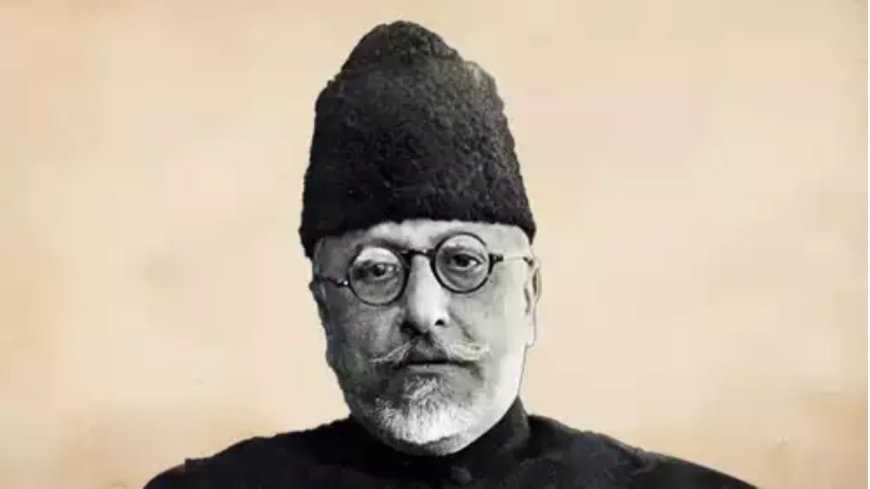
In honor of Maulana Abul Kalam Azad's birth anniversary, the first education minister of independent India, National Education Day is celebrated annually on November 11. India gained statutory organizations during Azad's leadership as its education minister, including the University Grants Commission (UGC), the All-India Council for Technical Education (AICTE), and the Indian Institute of Technology (IIT) Kharagpur, the nation's first IIT. Additionally, he was involved in the founding of Jamia Millia Islamia (JMI). This day is a remembrance of his work advancing scientific knowledge and basic and secondary education in India. In light of this, let's examine Maulana Abul Kalam Azad's life and work and the background and significance of National Education Day.
About Maulana Abul Kalam Azad:
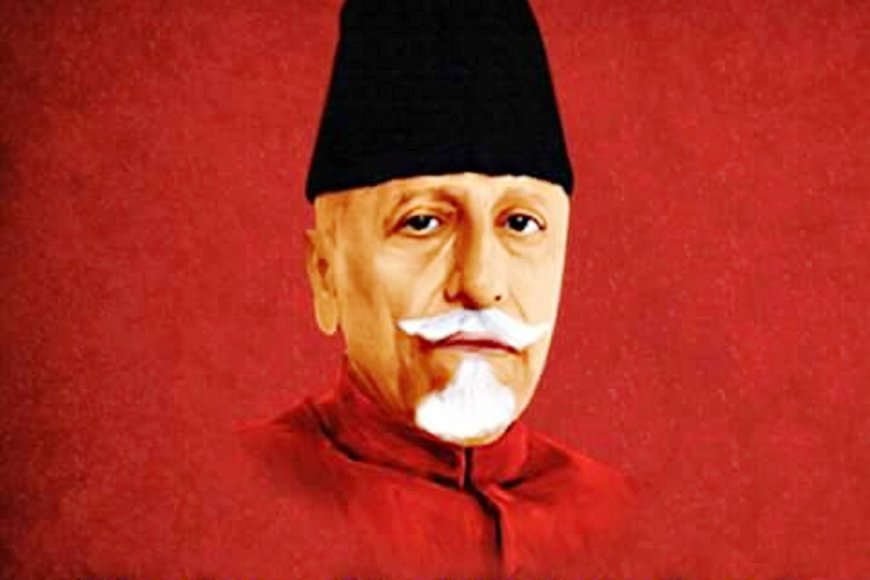
Maulana Abul Kalam Azad was born Abul Kalam Ghulam Muhiyuddin in Mecca, Saudi Arabia, on November 11, 1888. His father, Maulana Khairuddin, was a renowned Islamic scholar.
Azad was inspired by the modernist writings of Sir Syed Ahmed Khan, an Indian philosopher and educator.
The Contributions of Maulana Abul Kalam Azad to India:
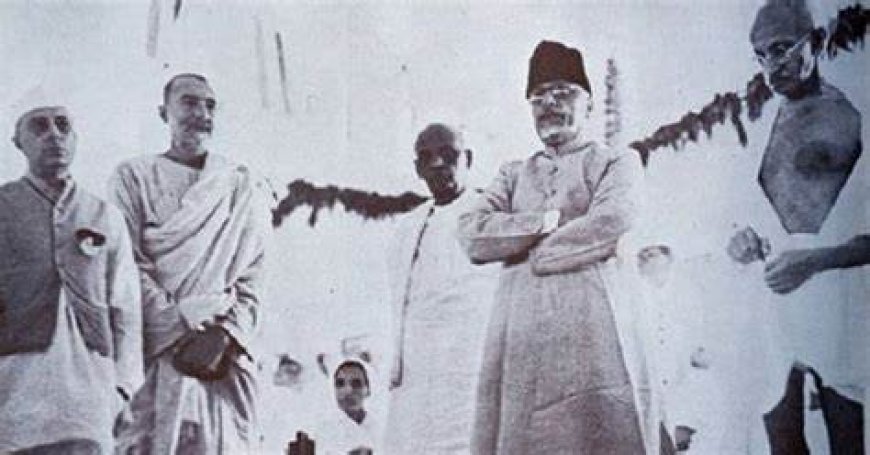
As a young man, Azad founded Al-Hilal, an Urdu newspaper in Calcutta that was subsequently banned by the British.
Azad served as president of the All-India Khilafat Committee during his brief involvement in the Khilafat Movement. In 1923 and 1940, he was elected president of the Indian National Congress twice. He enthusiastically participated in the Quit India Movement and the Dandi March after being inspired by Mahatma Gandhi.
Following independence, Azad was named Education Minister, a position he maintained in Pandit Jawaharlal Nehru's government for ten years, until 1958.
The establishment of the Council of Scientific and Industrial Research (CSIR), Sahitya Academy, Lalit Kala Academy, Sangeet Natak Academy, and Indian Council for Cultural Relations (ICCR) is attributed to Maulana Abul Kalam Azad.
In his capacity as the first education minister, Maulana Abul Kalam Azad was instrumental in the establishment of educational institutions, the advancement of elementary and secondary education, and the expansion of postsecondary educational possibilities.
He thought that all children up to the age of 14 should have free, mandatory schooling.
He received the Bharat Ratna, India's highest civilian honor, posthumously in 1992 for his outstanding contributions to education. ]
The Significance of National Education Day:
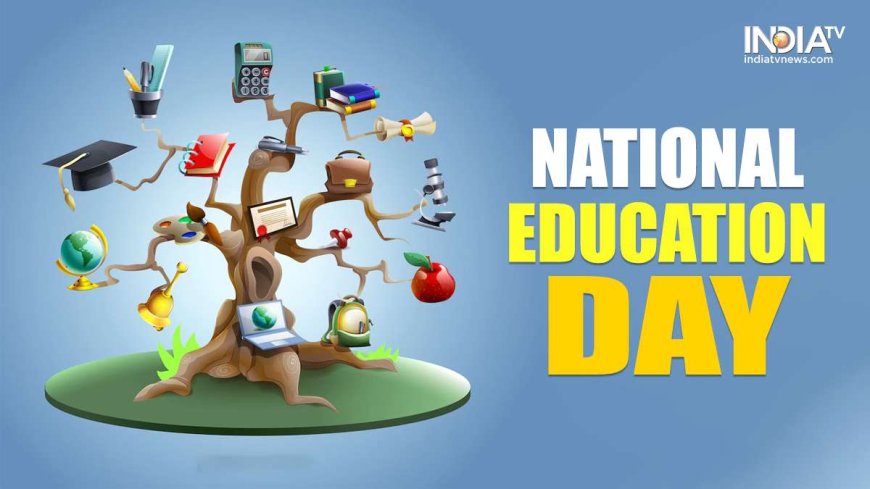
Raising awareness of the importance of education for both individual and national development is the main objective of National Education Day.
With the ultimate objective of teaching scientific and practical information, it also promotes the opportunity to search for ways to enhance the Indian educational system.
The day is centered on taking action to ensure that all people and children, regardless of their origins, get high-quality education and learn new skills.
Why Celebrate National Education Day?
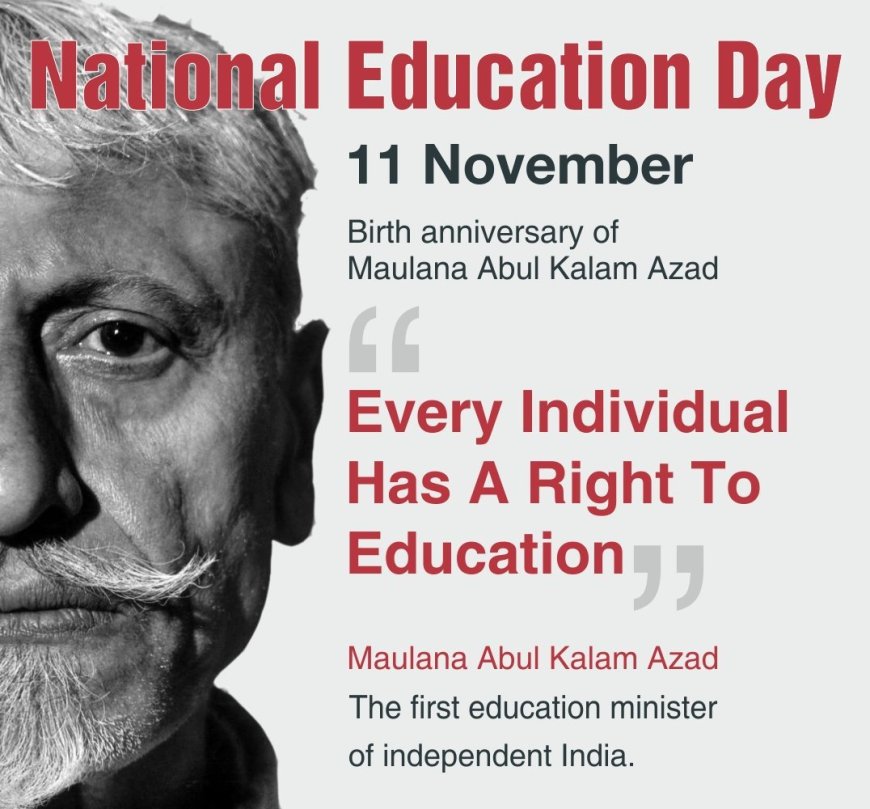
It's a good time to take stock of our achievements and discuss the continued difficulties in ensuring that everyone has access to high-quality education as we commemorate National Education Day.
The foundation of a country's development is its educational system. With an outstanding choice-based credit system, India has one of the biggest higher education systems in the world. As we embrace new and emerging technologies, we must now make further expenditures to improve the nation's institutional infrastructure to maintain excellence and meet international standards. This day serves as a reminder of how critical it is to improve our educational system to equip the next generation of thinkers, trailblazers, and leaders who will influence India's course in the future.
Give Educators More Power By Continuing Professional Development:
Fostering an innovative learning environment requires educators to be empowered. In order to provide teachers with the skills and assurance they need to successfully teach developing subjects, teacher preparation programs need to be updated. Teachers will stay up to date on technology innovations and be able to incorporate them into their teaching techniques if they participate in ongoing professional development that is facilitated by collaboration with specialists in the sector.
Current Challenges and Next Steps
Despite substantial advances, the Indian education system still faces several issues, including uneven access to school, high dropout rates, and disparities in educational quality between regions. National Education Day provides a chance to reflect on these problems and reaffirm the nation's commitment to educational reform.t to educational reform.
Key Government Initiatives:
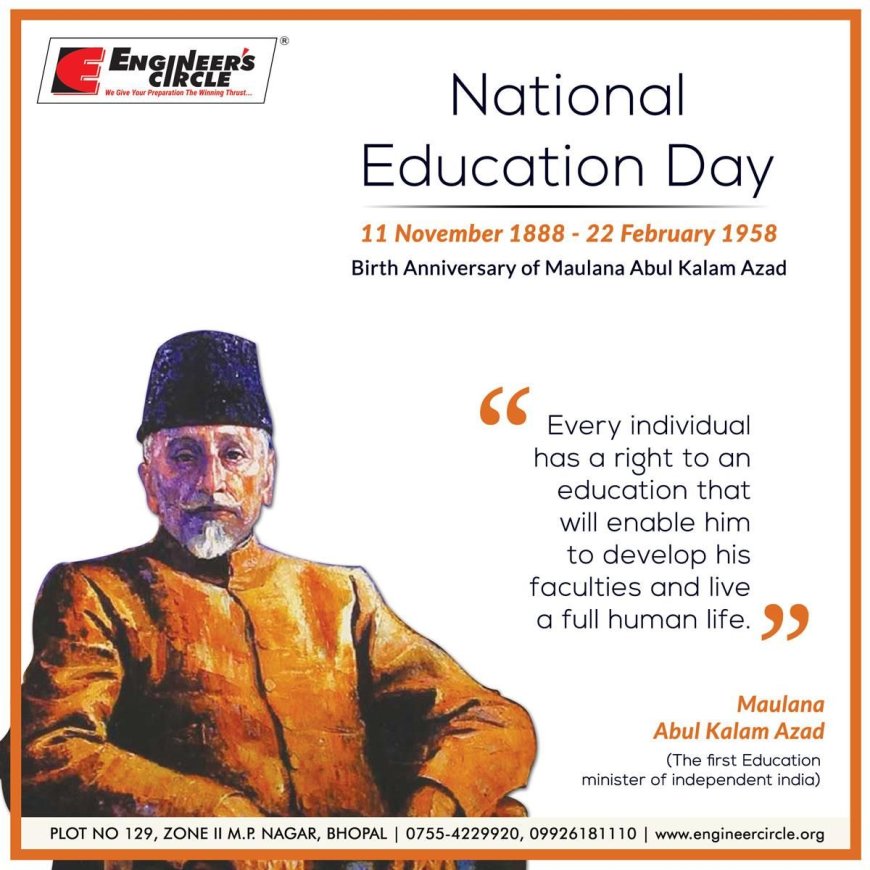
National Education Policy (NEP) 2020.
The National Education Policy (NEP) 2020 was established with the goal of bringing about a significant overhaul in the Indian education system to meet the demands of the twenty-first century. This comprehensive strategy emphasizes holistic education, inclusivity, and skill-based learning. It encourages transdisciplinary education and seeks to close the gap in access to excellent education at all levels, from basic to higher education.
PM Shri Yojana.
The PM Shri Yojana, which commenced on September 7, 2022, intends to transform over 14,500 schools throughout India into model schools under the National Education Policy 2020. These schools will act as centers of excellence, demonstrating how essential NEP 2020 components are being implemented.
Samagra Shiksha Abhiyan
The Samagra Shiksha Abhiyan, which began on April 1, 2021, focuses on delivering inclusive and equitable education for everyone, ensuring that no kid is left behind. It combines pre-primary, primary, and secondary education, resulting in a more cohesive educational system.
The Nupani Bharat Mission
The Nipun Bharat Mission, launched on July 5, 2021, intends to attain basic reading and numeracy for all children by the end of Grade 3 in 2026-27. This project is critical to ensuring that children gain vital abilities during their early years.
Investing in Education: Building for the Future
The Department of School Education and Literacy received a budget allocation of ₹73,498 crore in 2024-25. This includes major support for Kendriya Vidyalayas (₹9,302 crore) and Navodaya Vidyalayas (₹5,800 crore), which are vital in providing quality education to kids across India. These investments are crucial to ensuring that India's education system is prepared to face the challenges and possibilities of tomorrow.
Conclusion
National Education Day commemorates education's transformational influence in influencing the nation's destiny. By recognizing Maulana Abul Kalam Azad's accomplishments and pushing for ongoing development in our educational system, India can secure a brighter, more inclusive future for future generations. As Maulana Azad famously stated, "True education can bring revolutionary changes in society." This day should spur joint efforts to give great education to all residents, resulting in a more intelligent and progressive society.
Frequently Asked Questions.
Q: Why do we honor National Education Day?
National Education Day honors the accomplishments of India's first education minister, Maulana Abul Kalam Azad, and his vision for the country's educational system.
Q: What are the key government education schemes?
Answer: Major government programs include the National Education Policy (NEP) 2020, PM SHRI Yojana, Samagra Shiksha Abhiyan, NIPUN Bharat Mission, and DIKSHA Platform.
Q: What is the purpose of NEP 2020?
Answer: The NEP 2020 intends to create a comprehensive, inclusive, and 21st-century-ready education system in India, with a focus on interdisciplinary education and skill development.
What's Your Reaction?



































































































